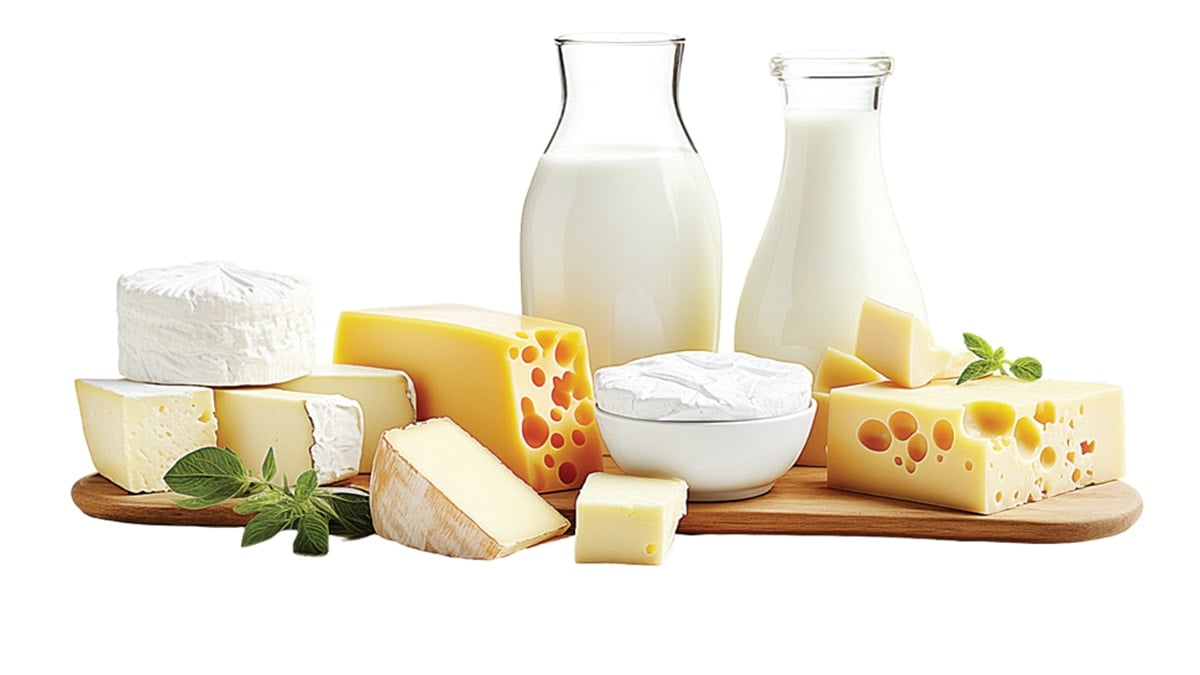The silent trio in bone health: Calcium, Vitamin D, K2

Vitamin D: If there is sun, there are bones
Vitamin D ensures the absorption of calcium from the intestines. Without it, the calcium taken in is largely excreted from the body. Vitamin D deficiency is common. In Türkiye, 70% of individuals over the age of 50 have insufficient vitamin D levels. (Source: Turkish Endocrinology Association, 2022)
In case of deficiency:
- Calcium absorption from the intestines decreases by up to 30%. - The body draws the calcium it needs from the bones.
- This leads to a silent decrease in bone density.
Daily recommended vitamin D:
- If there is a deficiency: 2,000–4,000 IU - For protection: 800–1,200 IU
(Source: Endocrine Society Guidelines – Vitamin D and Bone Health, 2019)
However, excessive doses of vitamin D (over 10,000 IU per day) can cause calcium to accumulate in the vessels and increase the risk of kidney stones.

Calcium: It's not all about that...
Calcium is the building block of bones. However, taking supplements alone will not build strong bones. Calcium does not go to the bone as it enters the body; it needs “helpers” for proper orientation and absorption.
Daily calcium requirement of an adult:
- Up to 50 years of age: 1,000 mg - Women over 50 and men over 70: 1,200 mg
(Source: National Institutes of Health – Dietary Supplement Fact Sheet, 2023) 1–2 glasses of milk, 1 bowl of yogurt and 1 slice of cheese a day can help meet this need. But not only food, but also stomach acid level, vitamin D status and magnesium presence determine absorption.
Vitamin K2: The overlooked protector
Vitamin K2 is a critical vitamin that directs calcium to the bone and keeps it away from the arteries. Without K2, calcium can accumulate in the wrong places, increasing the risk of hardening of the arteries (atherosclerosis).
K2 activates a protein called osteocalcin in the bone.
It also activates the protein called MGP (matrix gla protein), which is the “calcium scavenger” in the vein. (Source: Journal of Nutrition, 2020 – Vitamin K2 and arterial health)
In vitamin K2 deficiency:
- Calcium cannot be fixed in bones. - The risk of arterial calcification increases by 30%.
Recommended daily dose of K2:
- 90–180 mcg (micrograms)- Found in fermented products (natto), some cheeses, and egg yolks.
Note: Vitamin K may interact with blood thinners. Therefore, those who take regular medications should not take supplements without consulting a doctor.
Magnesium: Calcium drill
Magnesium is a cofactor for enzymes that help calcium settle in the bone. It also supports bone formation through parathyroid hormone.
Daily magnesium requirement:
- Men: 400–420 mg - Women: 310–320 mg
(Source: NIH – Magnesium Fact Sheet, 2023)
In case of deficiency:
- Calcium supplements are not effective enough. - Muscle cramps, fatigue, heart rhythm disturbances may occur.
Sources of magnesium:
- Pumpkin seeds - Almonds - Spinach - Whole grains
- Dark chocolate
Be careful when taking supplements“Combination” products containing not only calcium but also calcium + vitamin D + vitamin K2 should be preferred.
These are also definitely:
- Not to be taken with food, not on an empty stomach - To be used in the morning or at noon
- It should be taken in divided doses of no more than 500–600 mg per day.
Otherwise:
- Absorption decreases. - Excess calcium accumulates in the veins.
- The risk of kidney stones instead of bone increases.
Tomorrow:- One in every three fractures is in the hip bone - The risk of death after surgery is up to 20% - Women experience it more often, men more fatally - It is very difficult to return to independent living after a fracture
- Simple precautions that can be taken to prevent falls
SÖZCÜ





